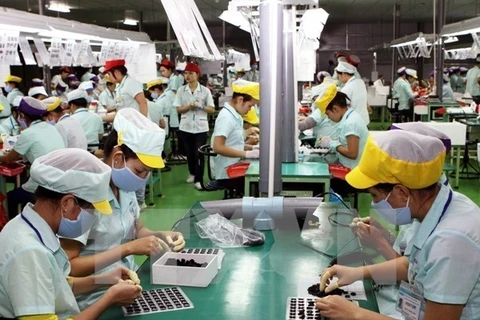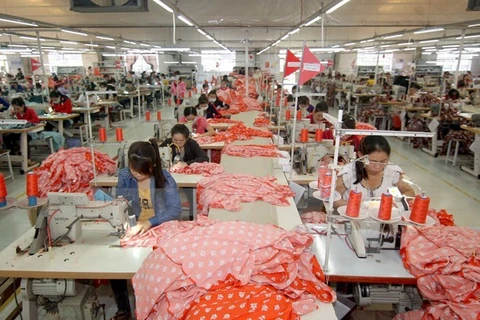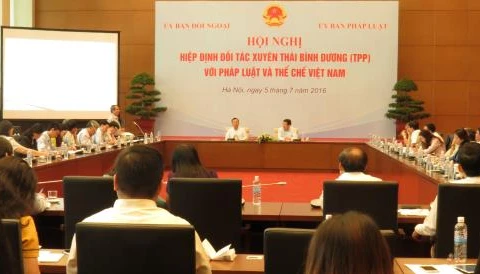 Tran Van Hang, Head of the NA’s Committee for External Relations, speaks at the conference. (Photo: baonghean.vn)
Tran Van Hang, Head of the NA’s Committee for External Relations, speaks at the conference. (Photo: baonghean.vn) Nghe An (VNA) – A conference on the Trans-Pacific Partnership (TPP) agreement and its impacts on Vietnam’s economic, financial and intellectual property sectors took place in Vinh city, the central province of Nghe An on July 7.
The event was organised by the National Assembly (NA)’s Committee for External Relations, Committee for Economic Affairs, Committee for Finance and Budget and Committee for Science, Technology and Environment.
During the conference, attendees discussed opportunities and challenges posed by the TPP on several industries and how enterprises have prepared for the trade deal. They also conferred on its impacts on finance and intellectual property sectors, and proposed institutional and legal solutions.
Tran Van Hang, Head of the NA’s Committee for External Relations, said the TPP will touch every part of the economy and all domestic enterprises. It will provide opportunities for Vietnam to improve its institutions and create a more dynamic, transparent and effective business climate, he noted.
Perfecting the country’s institutional and legal systems, on the other hand, is also a challenge, Hang noted, adding that the country needs to restructure its economy and enhance the competitiveness of enterprises before the pact takes effect.
According to the World Bank, the TPP may expand Vietnam’s GDP and exports by 33.6 billion USD and 68 billion USD, respectively, in 2025, as the zero customs duties in large markets like the United States, Japan and Canada would create a huge advantage for the country’s exports, particularly of key industries including clothing, footwear and timber products.
Vietnamese consumers and businesses will have access to high-quality goods and input materials with lower prices, while a new wave of foreign investment into the country is also expected.
However, he voiced concern over the TPP commitments on fair treatment to be given to both foreign and local enterprises, which means less government subsidy for local businesses. It is also more difficult for the government to manage capital flows and ensure a safe financial market, he added.
Dau Anh Tuan from the Vietnam Chamber of Trade and Industry (VCCI) said it is not easy for local businesses to understand the TPP commitments when there is very little information provided by the state agencies on these matters.
In addition to this are many other barriers in terms of taxation policies, customs procedures, infrastructure and local labour, he noted.
Tuan suggested the competent agencies examine the compatibility between TPP regulations and Vietnam’s legal system in economic, financial and intellectual property fields and continue dialogues with those touched by the trade deal to support the policy-making process for the future implementation of the pact.-VNA
























